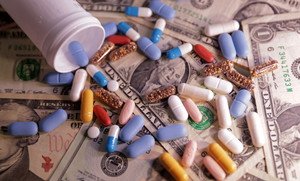Exclusive-Global health funds push for more private money, fearing government retreat
Published by Global Banking & Finance Review®
Posted on January 22, 2025
3 min readLast updated: January 27, 2026

Published by Global Banking & Finance Review®
Posted on January 22, 2025
3 min readLast updated: January 27, 2026

Global health funds seek more private donations due to US WHO exit, raising concerns over government funding. Global Fund targets $2 billion from private entities.
By Jennifer Rigby
LONDON (Reuters) - One of the world's biggest global health funders will ask the private sector for a steep increase in donations as concern of a shortfall in government contributions grows following a U.S. decision to exit the World Health Organization.
The Global Fund to Fight AIDS, Tuberculosis and Malaria told Reuters it will ask for almost 50% more money from private entities, including philanthropic organisations and companies, for a total of $2 billion, when it launches a new funding round later this year.
Executive Director Peter Sands said the plan, due to be announced at the World Economic Forum in Davos, Switzerland, was already in place before the U.S. election in November. International aid groups are grappling with a tight fiscal climate globally, as well as increasing demand for their work, from coping with conflict to responding to climate change, he said.
The fund is "raising the bar on what we want to achieve with private sector donors," Sands said in an interview this week.
In its last funding round, the Global Fund raised $15.7 billion for its work over three years. That included $1.3 billion from the private sector, including philanthropic groups like the Gates Foundation and companies such as mining giant Anglo American and Japanese pharmaceutical company Takeda. The Fund will announce the total amount of money it is seeking for the next period of work, 2027-2029, later this year.
US RETREAT SENDS SHOCKWAVES
The U.S. is historically the Fund's biggest donor, pledging $6 billion to the last funding round. The country’s contributions during Trump's first term as president from 2016-2020 were similar to previous administrations.
Trump was inaugurated for the second time on Monday, and swiftly moved to exit the WHO and freeze international aid, sending shockwaves around the global health community worldwide.
“It’s unfortunate that it has come to this point,” said Sands, saying the US had an extraordinary record in global health alongside the WHO’s role critical role in setting guidance and norms. “We need to keep the focus on the human impact, and particularly on the impact on the health of the poorest and most marginalised.”
The Global Fund gives grants directly to organisations working in disease-hit regions to curb the spread of illness and improve health systems. The WHO focuses on global co-ordination to track and contain epidemics, responding to emergencies and promoting health and universal health care internationally.
A number of other global health organizations are also looking to raise money this year, including the vaccine group Gavi, which is seeking $9 billion to help support childhood immunization in the world's poorest countries.
In board documents released in December, it too warned of the increasing risk of missing its targets due to government shortfalls, citing the slowing global economy, wars, competing aid priorities, and elections in many donor countries.
Gavi also plans to set up a private sector investors group this year and focus on diversifying its funding sources, the documents showed.
"Gavi never takes support from donors for granted," she said, saying they were aware of the conflicting issues facing governments. The U.S. is also one of Gavi’s biggest donors, alongside the United Kingdom and the Gates Foundation.
Gavi works with the WHO to support countries’ vaccination programmes.
(Reporting by Jennifer Rigby, editing by Michele Gershberg and Christina Fincher)
The article discusses global health funds seeking increased private sector donations due to concerns over government funding shortfalls following the US exit from the WHO.
The Global Fund is concerned about a shortfall in government contributions, especially after the US decision to exit the WHO.
Gavi aims to raise $9 billion to support childhood immunization in the world's poorest countries.
Explore more articles in the Finance category


